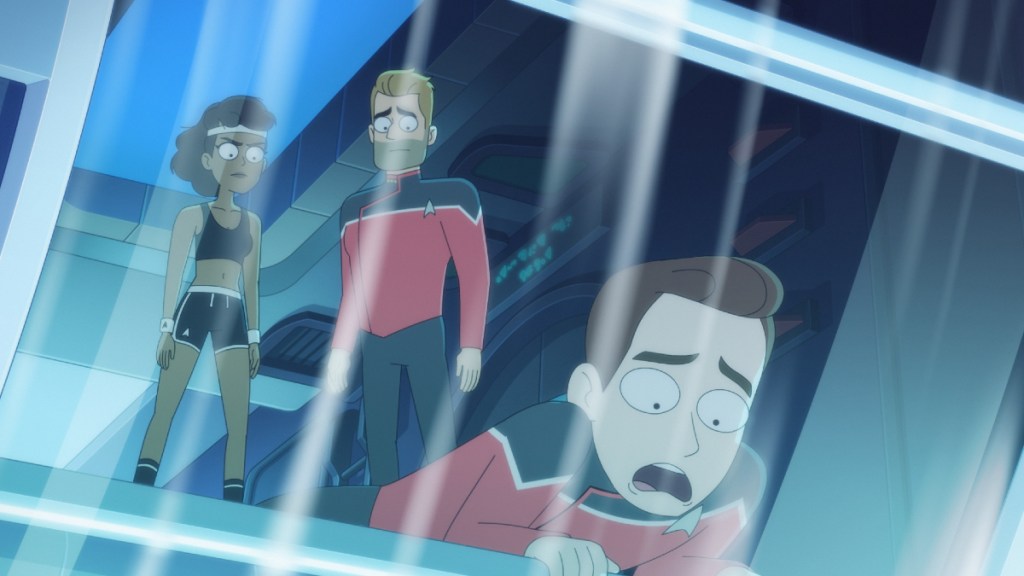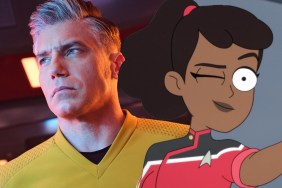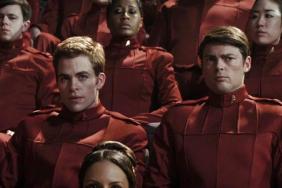It’s instructive to compare Star Trek: Lower Decks to the reality series Below Deck, which purports to chronicle the lives of bunked-together crewmates on a luxury customer service boat. On reality TV, the stars are TV sexy and dumb and hook up a lot, while in the Star Trek universe, the lower-deck leads are good-looking nerds who have existed thus far as platonic friends, despite hetero math working in their favor. At least until now — in the fourth season, science geeks Tendi (Noelle Wells) and Rutherford (Eugene Cordero) find their friendship tested by some close scenarios that threaten to push them out of the friend zone, like so many Romulans on the border of Starfleet space.
Engaged?
Brad Boimler (Jack Quaid) and Beckett Mariner (Tawny Newsome) would seem to be in no danger of romance, but their characters get to develop nonetheless. When the Ensigns all get promoted, Mariner has to deal with her rebellion issues now that she has nothing left to tangibly rebel against, while Boimler’s anxiety spikes with the addition of some actual authority over others. We learn a lot more about Tendi’s backstory, and let’s just say its similarities to Rutherford’s — they’re both aggressive rebels who became nerds — makes them perhaps even more suited to each other than before. Gabrielle Ruiz’s Vulcan character T’Lyn effectively becomes a series regular, offering a new take on the emotion-suppressing race when forced into a demeaning role.
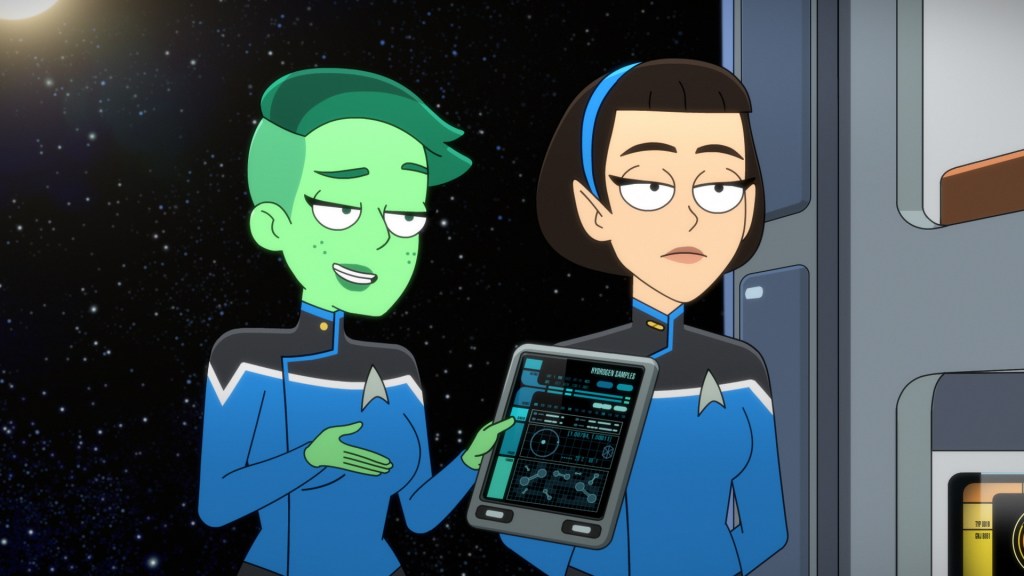
The characters don’t exactly become cool, as we feared in reviewing season 3. By moving forward into new positions, they find new ways to be awkward. It’s not that they get no respect — it’s that they’re as likely to crack under pressure as to prevail against it. Like every good Trek crew, however, they are there for each other and perhaps depend upon that dynamic more than a ship with Spock aboard ever would.
Strange New Developments
Fans may debate whether or not Lower Decks is canon, but ever since the crossover episode with Strange New Worlds, it’s officially at least as canon as that version of the classic Enterprise. As such, it does move the timeline forward, offering us the first decent look at one pretty significant world and catching up with the occasional legacy character who’s no longer quite what they used to be. [Eight episodes were provided out of ten, and we’re sworn to secrecy on specifics.]
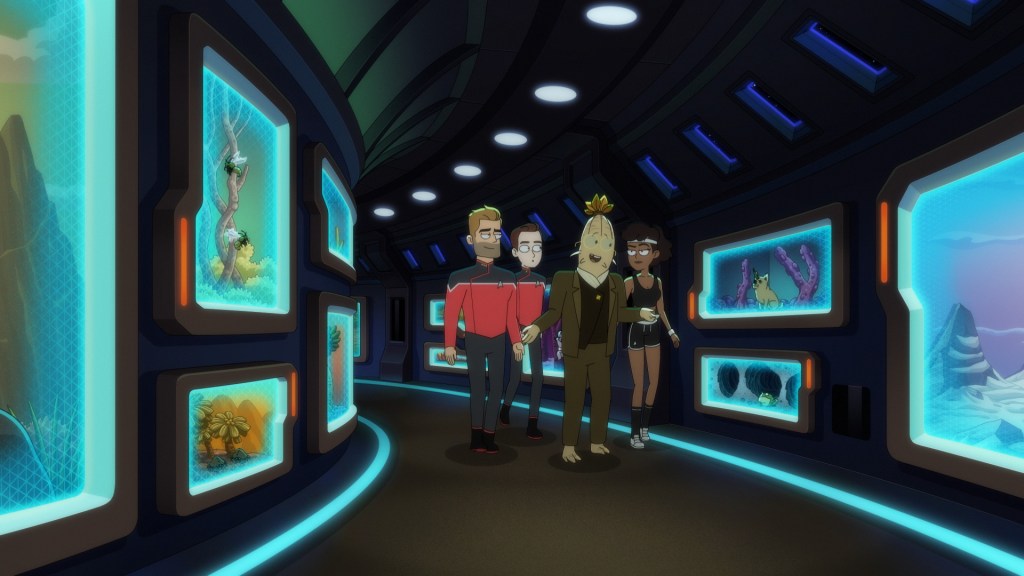
Meanwhile, the show does appear to be developing some formulas of its own. There’s the episode that takes the plot of an older show’s episode and pushes the conceit as far into geek argument ad absurdium territory as it can. There’s an episode that mocks a particular Trek trope from every possible angle while also spoofing clip shows. Some familiar Lower Decks-specific villains return, and some deep dives into lore are recontextualized in funny ways, with at least one alien race only seen in the original animated series getting the spotlight anew. We even get a little modern social commentary: of course, conspiracy theorists in the 24th century don’t believe Q is real!
Bigger Fish to Fry?
In the background, a series-long subplot is also evolving. Presumably, episode 10 will reveal all; for now, it seems like a threat akin to The Motion Picture’s V’Ger may be on the way. Meanwhile, the creators of Futurama might have a thing or two to say about Tendi’s background vaguely resembling Amy Wong’s; or a Nibbler-ish critter named Moopsy, whose plushies we can probably expect to see for purchase shortly.
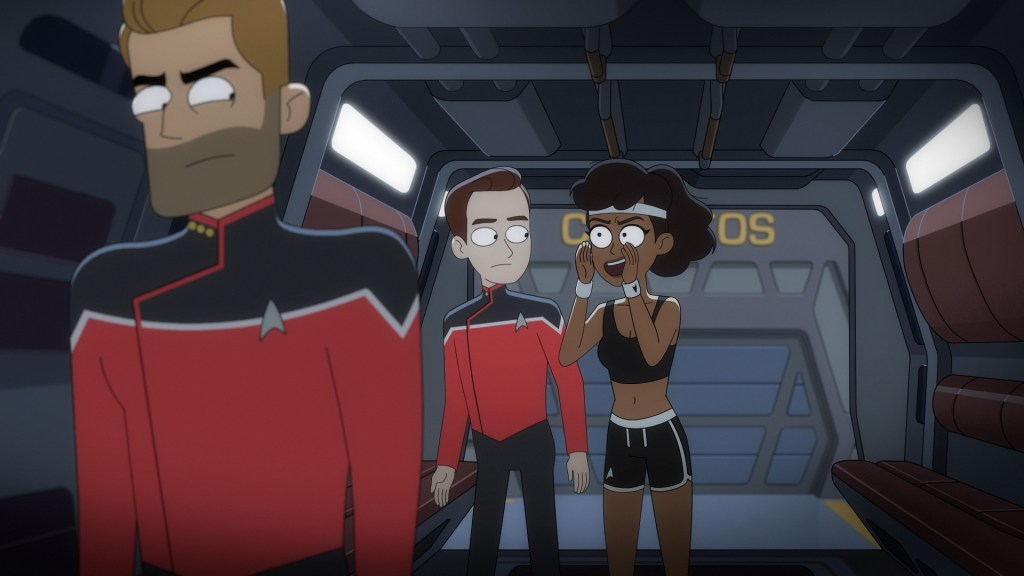
Despite settling into some tropes of its own, and perhaps because of the shorter runtime, Lower Decks remains, episode-for-episode, the most consistently entertaining Star Trek show. It may be a comedy, but it takes the universe seriously — the humor, as always, comes from the fact that not everyone in space is as perfect as the crews of various Enterprises. There’s room in space for crews of screw-ups, smartasses, and the selfish, and not just on the human side of things. When Mariner declares that Feringinar is like what Heaven would be if God were stupid, it’s not just perfectly in character but completely in-universe accurate as well. Gene Roddenberry intended the original series to show humanity at its best; Lower Decks shows humanity more as it is now while trying and often failing to be the best in optimum situations.
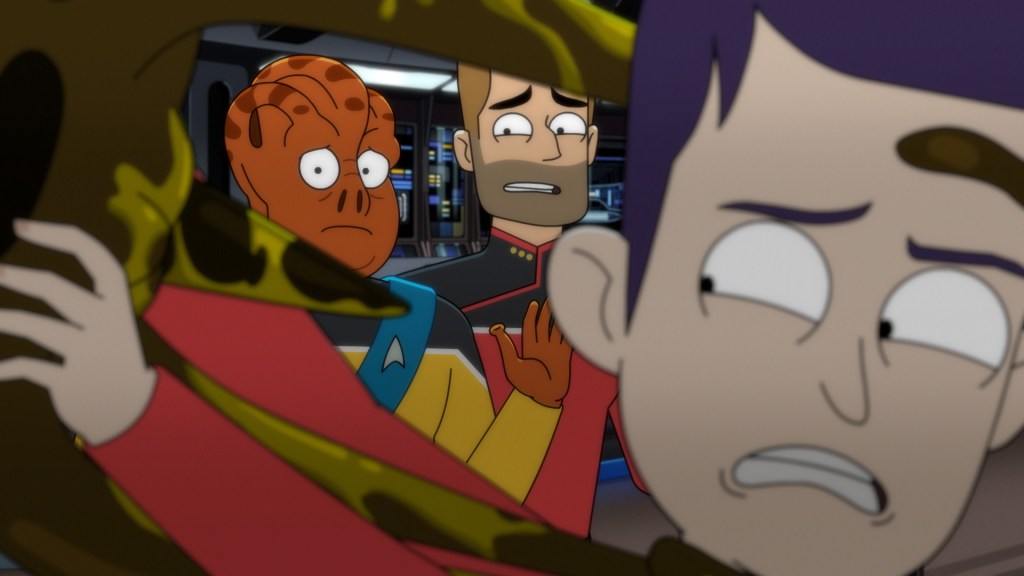
Alien: Introspection
In the spirit of Star Trek, aliens represent aspects of humanity as well, which now extends to most of the other species too. Previous seasons have let us glimpse the “Lower Decks” on Klingon ships, Pakled ships, etc… Season 4 suggests that atypical nerds of all the major races are everywhere, ragging on each other, overestimating their abilities, and sometimes getting it right. Star Trek remains aspirational, but Lower Decks suggests we need not wait for a perfect future because characters as occasionally misguided as we are can still prevail and make things better. Mostly.
Grade: 4.5/5
Star Trek: Lower Decks season 4 premieres Thursday, September 7, on Paramount Plus.
